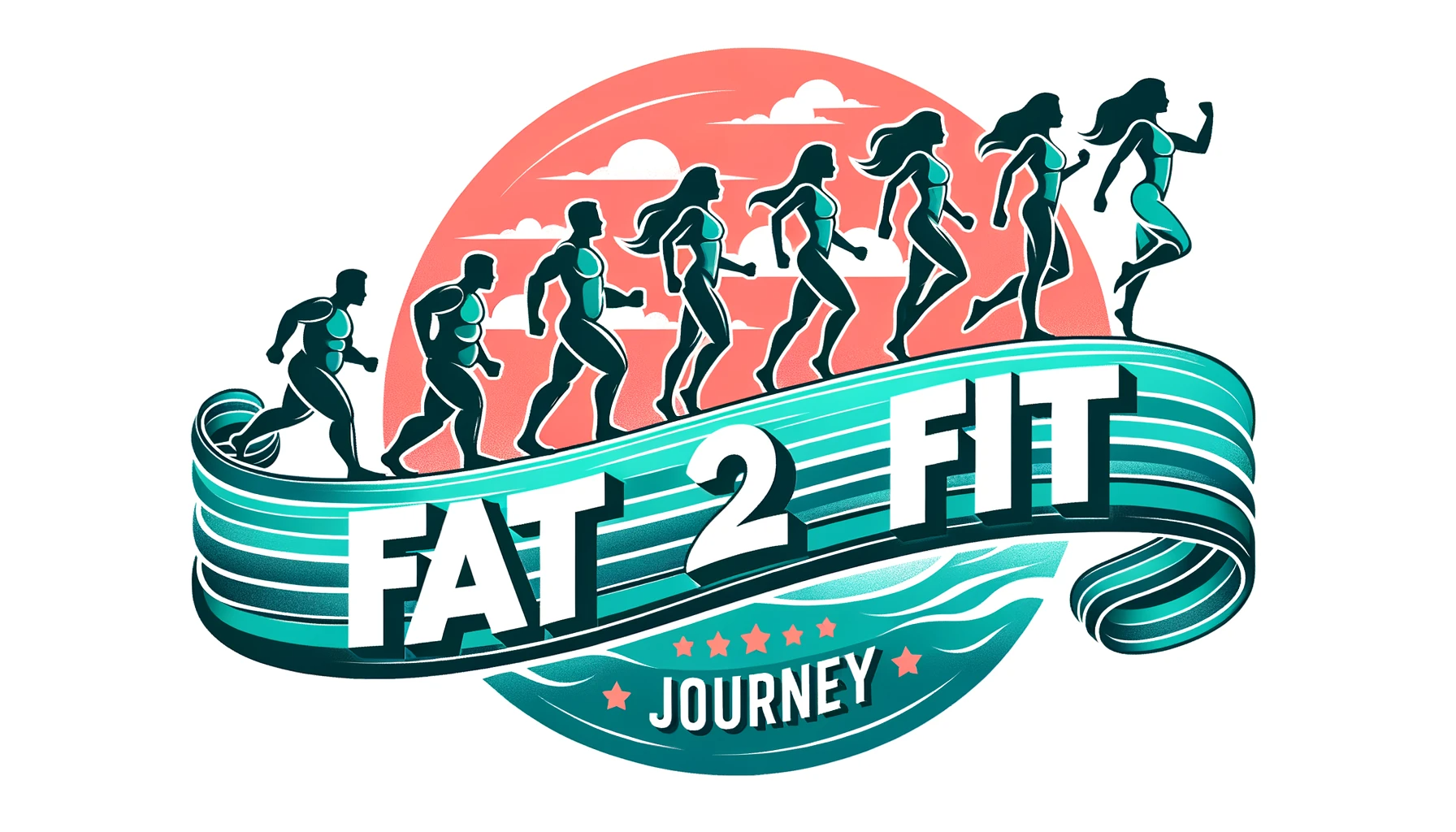Table of Contents
Are You Sure Weight Loss Supplements Help With Weight Reduction?
Are you constantly searching for the magic solution to shed those extra pounds? Well, you’re not alone. The craze for weight loss supplements is at an all-time high, promising miraculous results without any effort. But have you ever stopped to ask yourself, are you really sure that weight loss supplements actually help with weight reduction? In this article, we will explore the effectiveness and potential risks associated with these supplements, providing you with the information you need to make an informed decision about your weight loss journey. So, buckle up and get ready to uncover the truth behind these supposed miracle pills.
The Effectiveness of Weight Loss Supplements
Weight loss is a common goal for many individuals, and the market for weight loss supplements continues to grow. These supplements are often marketed as a quick and easy solution to shedding unwanted pounds. However, it is important to understand that weight loss supplements should be approached with caution and skepticism. This article will explore the effectiveness of weight loss supplements, the lack of regulatory oversight, limited scientific evidence, potential risks and side effects, and the importance of a healthy lifestyle.
Lack of Regulatory Oversight
One of the key concerns with weight loss supplements is the lack of regulatory oversight. Unlike prescription medications, which undergo rigorous testing and approval processes, weight loss supplements often fall under a different regulatory framework. The U.S. Food and Drug Administration (FDA) considers weight loss supplements to be a category of dietary supplements, which means they are not subject to the same regulations as prescription drugs.
This lack of regulatory oversight means that weight loss supplements can hit the market without thorough testing for safety, efficacy, or quality control. Manufacturers are responsible for ensuring the safety and accuracy of their products, but this self-regulation can create opportunities for misleading claims or the presence of potentially harmful ingredients.
Limited Scientific Evidence
While weight loss supplements may claim to be backed by scientific research, the reality is that the evidence supporting their effectiveness is often limited. Many weight loss supplements rely on individual studies or anecdotal evidence, rather than large-scale, long-term studies that evaluate their impact on weight reduction.
A systematic review published in the Journal of Obesity found that the majority of weight loss supplements lack sufficient scientific evidence to support their claims. This means that consumers may be purchasing and using products without a clear understanding of their actual efficacy.
Potential Risks and Side Effects
Weight loss supplements also come with potential risks and side effects that must be carefully considered. Some supplements may contain ingredients that are not adequately tested for safety or may interact negatively with medications or existing health conditions. Without proper regulation, there is also a risk that consumers may unknowingly purchase products that contain harmful substances.
Certain weight loss supplements have been associated with adverse effects on vital organs, including the liver and kidneys. These adverse effects can be particularly concerning for individuals with pre-existing health conditions or those taking multiple medications.
Understanding Weight Loss Supplements
To better understand the complexities surrounding weight loss supplements, it is important to examine the different types of supplements available, their mechanisms of action, and common ingredients.
Types of Weight Loss Supplements
Weight loss supplements encompass a wide range of products, including pills, powders, and liquids. Some supplements claim to suppress appetite, while others promote fat burning or block the absorption of nutrients. It is crucial to note that not all weight loss supplements work in the same way or produce the same results.
Mechanisms of Action
Weight loss supplements work through various mechanisms of action. Appetite suppressants, for example, aim to reduce feelings of hunger and decrease overall caloric intake. Fat burners, on the other hand, are designed to increase metabolism and promote the breakdown of fat cells. Meanwhile, blockers inhibit the absorption of certain macronutrients like carbohydrates or fats.
It is important to recognize that each mechanism of action may have different effects on the body and weight loss outcomes. Additionally, the effectiveness of these mechanisms can vary depending on an individual’s metabolism and lifestyle factors.
Common Ingredients
Weight loss supplements often contain a blend of ingredients that are intended to support weight reduction. Some common ingredients include caffeine, green tea extract, garcinia cambogia, and forskolin. While the specific efficacy of these ingredients may vary, they are often included based on their purported fat-burning or appetite-suppressing properties.
It is essential for individuals considering weight loss supplements to carefully review the ingredient list and consult with a healthcare professional. This is particularly important for those with allergies, sensitivities, or existing medical conditions that could be negatively impacted by certain ingredients.

Factors Influencing Weight Loss Supplement Use
Understanding the factors that influence individuals to use weight loss supplements is crucial in developing a comprehensive view of their effectiveness and potential impact on weight reduction.
Advertising and Marketing Strategies
The weight loss supplement industry is heavily influenced by advertising and marketing strategies. Companies often employ persuasive tactics to make bold claims about their products, highlighting quick results and minimal effort required. Through captivating before-and-after photos, testimonials, and catchy slogans, these marketing strategies can make weight loss supplements appear more effective than they may actually be.
Consequently, many individuals are attracted to weight loss supplements based on the promises made in advertisements. However, it is important to approach these claims with a critical eye and a focus on evidence-based choices.
Influence of Peer Recommendations
Peer recommendations and personal success stories can also play a significant role in the decision to use weight loss supplements. When someone sees a friend or family member achieving noticeable results through supplement use, they may be more inclined to try the same product.
While peer recommendations can provide anecdotal evidence of a supplement’s effectiveness, it is important to remember that individual results may vary. What works for one person may not necessarily work for everyone, and the impact of weight loss supplements is highly dependent on an individual’s unique physiology and lifestyle.
Desire for Quick and Easy Solutions
In today’s fast-paced society, many individuals are drawn to weight loss supplements due to a desire for quick and easy solutions. The promise of shedding pounds without the need for significant dietary changes or increased physical activity can be highly appealing. Weight loss supplements may offer a sense of hope and convenience, especially to those who have struggled with weight loss in the past.
However, it is important to recognize that long-lasting and sustainable weight loss requires a holistic approach that includes a healthy diet, regular exercise, and lifestyle changes. Weight loss supplements alone are unlikely to provide significant or lasting results.
Scientific Research on Weight Loss Supplements
Scientific research plays a critical role in understanding the effectiveness and safety of weight loss supplements. However, when it comes to weight loss supplements, the scientific literature is often complex and inconclusive.
Placebo or Real Effect?
One key challenge in weight loss supplement research is distinguishing between placebo effects and real effects. Placebos can produce positive results simply because individuals believe they are taking an effective treatment. Therefore, it can be challenging to tease out the true impact of a weight loss supplement from the placebo effect alone.
To adequately determine the efficacy of weight loss supplements, it is crucial to conduct controlled studies that compare the supplement to a placebo in a large sample size. These studies should be conducted over an extended period to assess both short-term and long-term effects.
Inconsistent Study Results
The scientific literature on weight loss supplements is rife with inconsistent study results. Positive findings from one study may be contradicted by negative findings from another. This variability is partly due to the methodologies used in the studies, as well as the inherent complexities and individual variations in weight loss.
It is important to approach weight loss supplement research with caution and critically evaluate the body of evidence as a whole. One study alone, particularly if it is an outlier, may not be indicative of the true effectiveness of a supplement.
Lack of Long-Term Studies
Long-term studies that assess the sustained effectiveness and safety of weight loss supplements are particularly lacking in the scientific literature. Many studies focus on short-term outcomes, which may not accurately reflect the long-term impacts on weight loss or potential side effects.
To obtain a more comprehensive understanding of weight loss supplements, future research should include long-term studies that track participants over an extended period. This would allow for a better assessment of the long-term efficacy and safety of weight loss supplements.

Potential Risks and Side Effects of Weight Loss Supplements
While weight loss supplements may appear to offer a simple solution, it is essential to consider the potential risks and side effects associated with their use.
Regulatory Loopholes and Unsafe Products
The lack of regulatory oversight in the weight loss supplement industry creates a potential for unsafe products to enter the market. Without strict regulations in place, there is a risk that supplements may contain harmful or undisclosed ingredients, or that manufacturers may make false or misleading claims about their products’ effectiveness.
To mitigate this risk, consumers should prioritize purchasing weight loss supplements from reputable manufacturers who adhere to industry standards and have a history of producing safe products.
Negative Interactions with Medications
Weight loss supplements can also interact negatively with certain medications. Some supplements may interfere with the efficacy of prescription medications or exacerbate existing health conditions. It is crucial for individuals taking medications to consult with a healthcare professional before starting any weight loss supplement.
A healthcare professional will be able to assess potential interactions and provide guidance on the safety and appropriateness of using weight loss supplements in conjunction with specific medications.
Adverse Effects on Vital Organs
Certain weight loss supplements have been associated with adverse effects on vital organs. For example, some supplements containing high levels of caffeine or other stimulants may lead to increased heart rate, high blood pressure, or arrhythmias. Other supplements may have hepatotoxic effects, potentially causing liver damage.
Individuals with pre-existing health conditions, such as cardiovascular disease or liver disease, should exercise caution when considering weight loss supplements. Additionally, anyone experiencing unusual symptoms or adverse effects should discontinue use and seek medical attention.
The Importance of a Healthy Lifestyle
Weight loss supplements should not be viewed as a standalone solution. It is important to recognize that sustainable weight loss is best achieved through a healthy lifestyle that includes a balanced diet and regular physical activity.
Balanced Diet and Caloric Intake
A balanced diet that emphasizes whole foods, including fruits, vegetables, lean proteins, and whole grains, is essential for achieving and maintaining a healthy weight. Weight loss supplements should not be used as a substitute for nutritious meals or as a means to justify unhealthy eating habits. Instead, they can be viewed as a supplement to a healthy diet if deemed appropriate by a healthcare professional.
It is crucial to understand that weight loss supplements cannot compensate for poor dietary choices, and a balanced, calorie-controlled diet remains the foundation of sustainable weight loss.
Regular Physical Activity
Physical activity is a key component of a healthy lifestyle and plays a vital role in weight management. Incorporating regular exercise into daily routines not only helps burn calories but also improves overall fitness, mental well-being, and cardiovascular health.
Weight loss supplements should not be seen as a substitute for physical activity, but rather as an adjunct to support weight loss efforts. Combining weight loss supplements with a well-rounded exercise program can enhance results and contribute to long-term weight management.
Sustainable Weight Loss Strategies
Sustainable weight loss requires a comprehensive approach that focuses on permanent lifestyle changes rather than quick fixes. Relying solely on weight loss supplements may lead to short-term results that are difficult to maintain.
Individuals should prioritize strategies that promote gradual and sustainable weight loss, such as setting realistic goals, making gradual dietary changes, and finding enjoyable forms of physical activity. Incorporating weight loss supplements into this overall strategy should be done with careful consideration and in conjunction with professional guidance.

Alternative Strategies for Weight Reduction
For individuals considering weight loss supplements, it is important to explore alternative strategies that have a stronger evidence base and promote long-term success.
Professional Guidance and Counseling
Working with a healthcare professional, such as a registered dietitian or a physician specializing in weight management, can provide valuable guidance and support. These professionals can evaluate an individual’s specific needs and goals, develop a personalized plan, and offer evidence-based recommendations for weight loss.
Professional guidance can help individuals navigate the complex world of weight loss supplements, understand their potential benefits and risks, and identify the most effective strategies for their unique situation.
Behavioral Changes and Mindful Eating
Behavioral changes and mindful eating are vital components of successful weight management. These strategies focus on developing a healthy relationship with food, understanding hunger and fullness cues, and making conscious choices about eating habits.
By practicing mindful eating, individuals can become more attuned to their body’s needs, enjoy their meals without guilt or restriction, and make choices that align with their overall well-being. These strategies can contribute to sustainable weight loss and improved overall health, without the reliance on supplements.
Incorporating Natural Ingredients
For individuals who are interested in weight loss supplements, exploring supplements that incorporate natural ingredients may be a more favorable option. Natural ingredients, such as green tea extract or fiber supplements, may provide modest benefits without the potential risks associated with synthetic or unregulated substances.
It is important to note that even natural ingredients can have potential side effects or interactions with medications. Therefore, it is crucial to consult with a healthcare professional before starting any natural weight loss supplements.
Considering Individual Differences and Unique Needs
When considering weight loss supplements or any weight reduction strategy, it is important to take into account individual differences and unique needs.
Individual Variations in Metabolism
Every individual has a unique metabolism that can influence how they respond to weight loss interventions, including supplements. Some individuals may naturally have a higher metabolic rate and find it easier to lose weight, while others may have a slower metabolism that makes weight loss more challenging.
Considering these individual variations is essential when determining the potential effectiveness of weight loss supplements. What may work for one person may not necessarily work for another, and it is important to approach weight loss with realistic expectations and patience.
Medical Conditions and Allergies
Individuals with pre-existing medical conditions or allergies should exercise caution when considering weight loss supplements. Some ingredients may interact negatively with certain medications or exacerbate underlying health conditions.
It is crucial to consult with a healthcare professional to evaluate the safety and appropriateness of weight loss supplements in relation to specific medical conditions or allergies. A healthcare professional can provide personalized advice based on an individual’s unique health needs.
Consulting a Healthcare Professional
Before starting any weight loss supplement or embarking on a weight loss journey, it is always advisable to consult with a healthcare professional. A healthcare professional can evaluate an individual’s overall health, provide personalized recommendations, and help navigate the complexities surrounding weight loss supplements.
A healthcare professional can also monitor progress, address any concerns or questions, and provide ongoing support throughout the weight loss process. This guidance is particularly important for individuals with underlying health conditions, those taking medications, or those who may have unique nutritional or metabolic needs.
Consumer Awareness and Education
Consumer awareness and education play a crucial role in making informed decisions about weight loss supplements.
Reading Labels and Understanding Claims
When purchasing weight loss supplements, it is essential to read labels and understand the claims being made. Labels should provide clear information regarding the ingredients, dosage, and potential side effects.
Understanding the claims being made is equally important. Look for scientifically supported claims and avoid products that make exaggerated or unrealistic promises. Remember that weight loss supplements are not magic pills, and sustainable weight loss requires a comprehensive approach.
Evaluating the Credibility of Information Sources
With the abundance of information available on weight loss supplements, it can be challenging to determine what is credible and reliable. When researching weight loss supplements, it is important to use reputable sources, such as scientific journals or trusted healthcare websites.
Be wary of information sources that are heavily influenced by marketing or sponsored content. Look for objective, evidence-based information that presents a balanced view of weight loss supplements.
Making Informed Decisions
Making informed decisions about weight loss supplements requires a combination of critical thinking, scientific literacy, and self-awareness. By conducting thorough research, consulting with healthcare professionals, and critically evaluating claims and evidence, individuals can make choices that align with their health goals and prioritize their well-being.
It is important to remember that weight loss is a personal journey, and what works for one person may not work for another. By taking an informed approach, individuals can make choices that are tailored to their unique needs and maximize their chances of achieving sustainable weight loss.
Conclusion
Weight loss supplements can seem like an attractive and convenient solution to shedding unwanted pounds. However, it is crucial to approach these supplements with caution and skepticism. The lack of regulatory oversight, limited scientific evidence, and potential risks and side effects highlight the importance of exercising critical thinking when considering weight loss supplements.
Weight loss supplements should never be seen as a substitute for a healthy lifestyle that includes a balanced diet, regular physical activity, and sustainable weight loss strategies. Natural ingredients, professional guidance, and mindful eating can offer more evidence-based alternatives to support weight reduction.
By considering individual differences, consulting with healthcare professionals, and prioritizing consumer awareness and education, individuals can make informed choices and prioritize their health and safety on their weight loss journey. Weight loss supplements should be viewed as an auxiliary approach, supporting an evidence-based and holistic approach to achieve and maintain a healthy weight. Health and safety should always be the top priorities when pursuing weight reduction.
